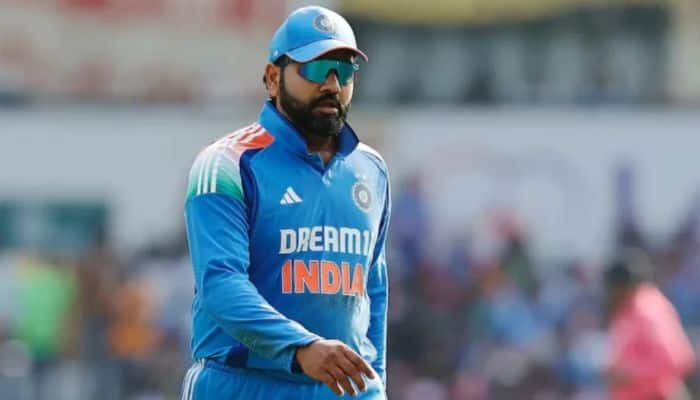Former India selector Saba Karim has stirred debate within cricketing circles by questioning veteran opener Rohit Sharma’s inclusion in India’s ODI squad for the upcoming three-match series against Australia, starting October 19. The BCCI recently announced the squad, confirming Rohit’s return to the 50-over format for the first time since leading India to Champions Trophy 2025 glory — but notably, without the captain’s armband.
Rohit Sharma Returns, But Without Leadership Role
The squad announcement marked a significant shift in India’s cricketing leadership as Shubman Gill was named captain, signaling a generational transition in Indian cricket. Karim, however, questioned the logic behind keeping Rohit in the squad if the selectors have already moved on from him as captain.
“If you haven’t made him the captain, then why are you still keeping him in the team? It clearly shows that you don’t see him as part of the future,” Karim said on KADAK.
The former wicketkeeper-batter suggested that if the selectors no longer view Rohit as part of India’s plans for the 2027 ODI World Cup, his inclusion in the team serves little purpose.
“In that case, you shouldn’t keep a player in the team whom you don’t see as part of your plans for 2027. Then whether he remains captain or not doesn’t really matter. The selectors have acted in great haste with Rohit Sharma — there was no need for it,” Karim added.
A Transition in Motion: Shubman Gill’s Rise as India’s New Leader
Karim’s remarks come at a time when the Indian team management appears focused on grooming Shubman Gill as a long-term leader. The 25-year-old opener has been elevated swiftly through the ranks — from vice-captain in T20Is to ODI captain for the Australia series — reflecting a clear strategy to invest in youth leadership.
“You have elevated him and even made him the vice-captain in T20s. Now that you have made him captain, the thought is that very soon, maybe by the next season, we will see Shubman Gill leading in all three formats,” Karim said.
Gill’s growing maturity and tactical awareness have been widely praised. His performances in Test cricket, coupled with his consistency across formats, have established him as one of India’s most promising all-format players. According to Karim, Gill’s appointment is both “logical and timely,” aligning with India’s long-term vision for the 2027 ODI World Cup.
Rohit Sharma’s Legacy vs. India’s Future Plans
At 38, Rohit Sharma remains one of India’s most successful white-ball captains. Under his leadership, India clinched the Champions Trophy 2025, and his batting continues to anchor the top order. However, with India looking toward the future, his role appears to be under scrutiny.
While Rohit’s experience could still prove invaluable in guiding young players like Gill, critics argue that his continued inclusion without captaincy sends mixed signals about India’s direction. For many, the question isn’t about Rohit’s ability, but about whether he fits into the long-term roadmap that prioritizes youth and continuity.
Karim’s comments reflect a broader sentiment among cricket pundits — that India’s selectors must balance respect for senior players with the need for future planning. The decision to keep Rohit without leadership duties could indicate a transitional phase rather than an outright exclusion, but the messaging remains ambiguous.
India’s Leadership Shift: A Sign of Things to Come
India’s ODI squad for the Australia series represents more than just another bilateral contest — it’s a testing ground for Gill’s leadership and a preview of India’s next-generation core. With Virat Kohli, KL Rahul, and Jasprit Bumrah also nearing the twilight of their careers, the BCCI seems intent on ensuring a smooth transition of power.
Rohit, meanwhile, will captain India in the second Test against West Indies at the Arun Jaitley Stadium on October 10, marking his continued relevance in the red-ball format. However, whether he remains central to India’s white-ball plans remains to be seen.

